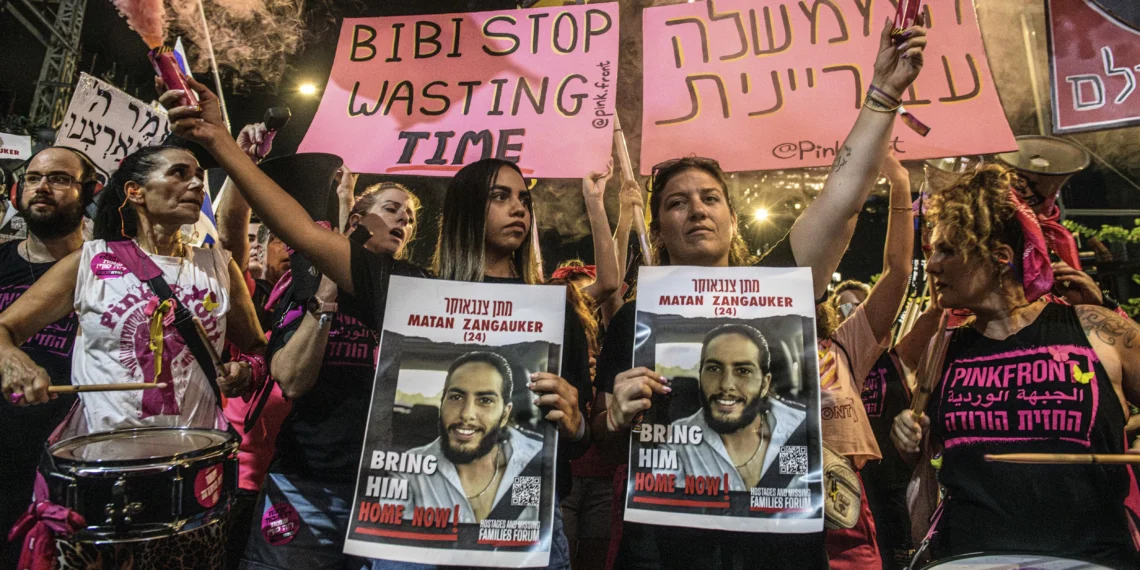Israeli Society Is in a Deepening State of Contradiction
The state of Israel has been in a constant state of conflict since its establishment in 1948. However, in recent years, the situation has become even more complex and challenging. The Israeli people are facing a deepening state of contradiction, torn between their desire for peace and security, and the reality of endless war. And at the center of this turmoil is Prime Minister Benjamin Netanyahu.
For many Israelis, Netanyahu has become a symbol of the country’s never-ending conflicts. He has been in power for over a decade, and during his tenure, Israel has been involved in multiple wars and military operations. The most recent being the 11-day conflict with Hamas in Gaza, which left hundreds dead and thousands injured. This has led to a growing sentiment among the Israeli people that Netanyahu is responsible for dragging them into these endless wars.
The Israeli society is now at a loss for how to carve a way out of this cycle of violence. They are tired of living in a constant state of fear and uncertainty. They want to see a change in leadership and a new approach to resolving the conflicts with their neighbors. However, with Netanyahu’s strong grip on power and the lack of a viable alternative, the Israeli people are feeling trapped and frustrated.
But the contradiction does not end there. While the Israeli people are tired of war, they also feel a strong sense of loyalty and duty towards their country. They have a deep-rooted belief in the importance of defending their homeland and protecting their people. This has created a conflicting mindset, where they want peace, but also feel the need to defend themselves at all costs.
This state of contradiction is also reflected in the Israeli society’s diverse demographics. Israel is a melting pot of different cultures, religions, and political beliefs. This diversity has always been a source of strength for the country, but it has also led to deep divisions and conflicting opinions on how to handle the ongoing conflicts. This has further complicated the situation and made it even harder to find a unified solution.
The recent conflict with Hamas has also highlighted the growing divide between the Israeli government and its citizens. Many Israelis feel that Netanyahu’s policies have only fueled the tensions and made the situation worse. They believe that his hardline approach has only led to more violence and has not brought them any closer to a lasting peace.
But despite all these challenges, there is still hope for a better future for Israel. The Israeli people are resilient and determined to find a way out of this state of contradiction. They are a nation that has faced countless challenges and has always emerged stronger. And this time will be no different.
The first step towards finding a solution is to acknowledge the deep-rooted issues within Israeli society. The government must listen to the voices of its people and work towards addressing their concerns. This includes finding a way to end the cycle of violence and promoting a more inclusive and united society.
Moreover, it is crucial for the Israeli government to engage in meaningful dialogue with its neighbors. The conflicts cannot be resolved through military action alone. It requires a willingness to listen and understand the concerns of both sides. Only through open communication and mutual respect can a lasting peace be achieved.
In conclusion, the Israeli society is facing a deepening state of contradiction, torn between their desire for peace and the reality of endless war. Prime Minister Benjamin Netanyahu has been at the center of this turmoil, and many Israelis blame him for the ongoing conflicts. However, the Israeli people are resilient and determined to find a way out of this cycle of violence. It is time for the government to listen to its people and work towards a more peaceful and inclusive future for Israel. Only then can the country truly move forward and overcome its state of contradiction.







